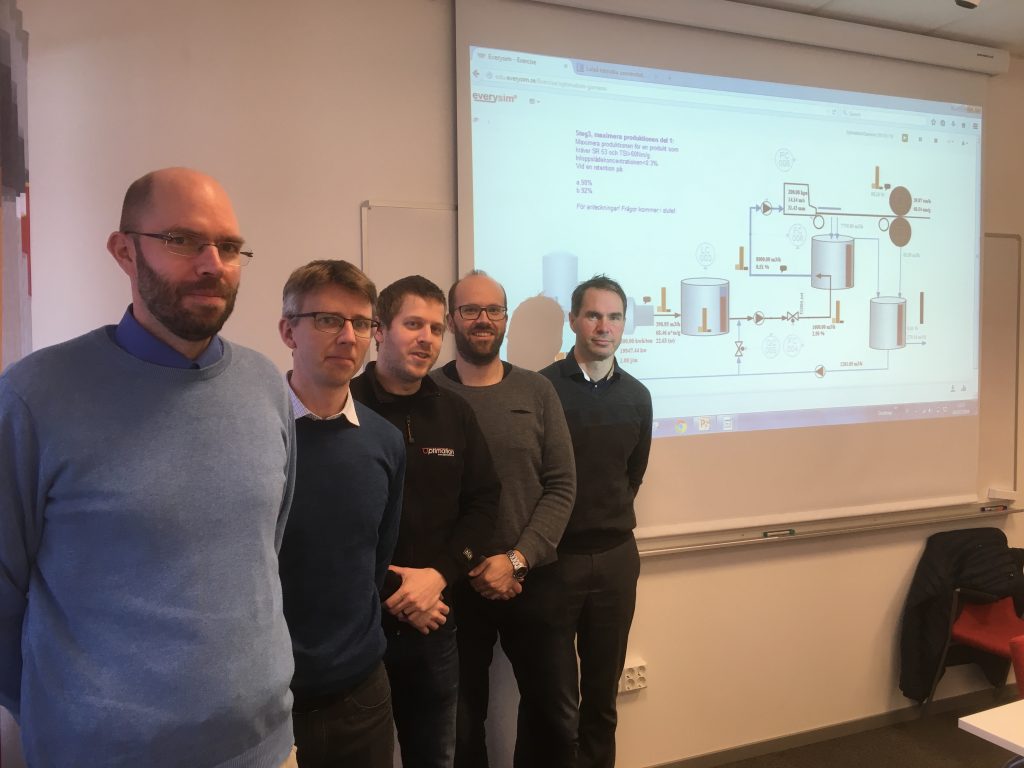
Gameon for simulation at LTU
Real-time simulation, where wrong decisions lead to realistic alarms about breakdowns or breaks on the paper path, is now an opportunity for prospective engineers at Luleå University of Technology, LTU. Starting this term, students in year four of “Industrial Environmental and Process Engineering” will run a virtual pulp and paper factory on their tablets or laptops.
Teachers Robert Nilsson and Curt Lindström at LTU have taught ten future engineers during their course in cellulose and paper engineering. In previous courses the teacher has reviewed each subprocess theoretically and explained the chemical and physical dynamics. This year’s course has first been a theoretical review, but this time the students have been given the opportunity to follow up the review by trying to control the process in the simulation software Everysim.
“It makes a huge difference when the students themselves can get a sense of the dynamics in each subprocess,” says Curt Lindström. Now red lights start flashing when they do not get it right in their attempt to control the process. They have learned more than in previous courses, and they have been very pleased to be able to control the process “for real”. The simulation goes all the way from pulping to the beginning of the press section.
Gameon is a short name for “Game Management in a Web Based Simulation Platform for Dynamic Processes”, a result of collaboration between LTU and Optimation, experts in Industrial Process Management and Modelling, and IT software company Softronic, which built the platform for the simulation models. The project has been partially funded by the Piia strategic innovation project.
Gameon is thus web-based, the simulation models run in the cloud, no installation required, and can be used on most devices ranging from mobile phones to computers. “Simulations can require a lot of performance, but it’s not a problem when executed in the cloud,” says Peter Lingman, Optimation. It can be boosted up to 50 times normal speed, which means that you can test a lot of process control during a double lesson.
“We have used a tight protocol to ensure that a 3G connection is also available for large and demanding simulations, such as high speed simulations,” says Joacim Marklund, Softronic.
Gameon can be seen as an example of Gamefication, using designs and features similar to those of computer games. The principle is common in teaching in a school environment, in healthcare and in business. Gameon has been partially funded by the strategic innovation project Piia, Process Industry IT and Automation, funded by industry together with Vinnova, Energy Agency and Formas during the period 2014-2016.
The simulation platform has been developed in collaboration between Optimation and Softronic and is known as Everysim. It can handle simulation models built in the Modelica language.
LTU is now alone in being able to use Gameon in teaching. But Optimation expects to use the technology for other customers, mainly in the process industry.

